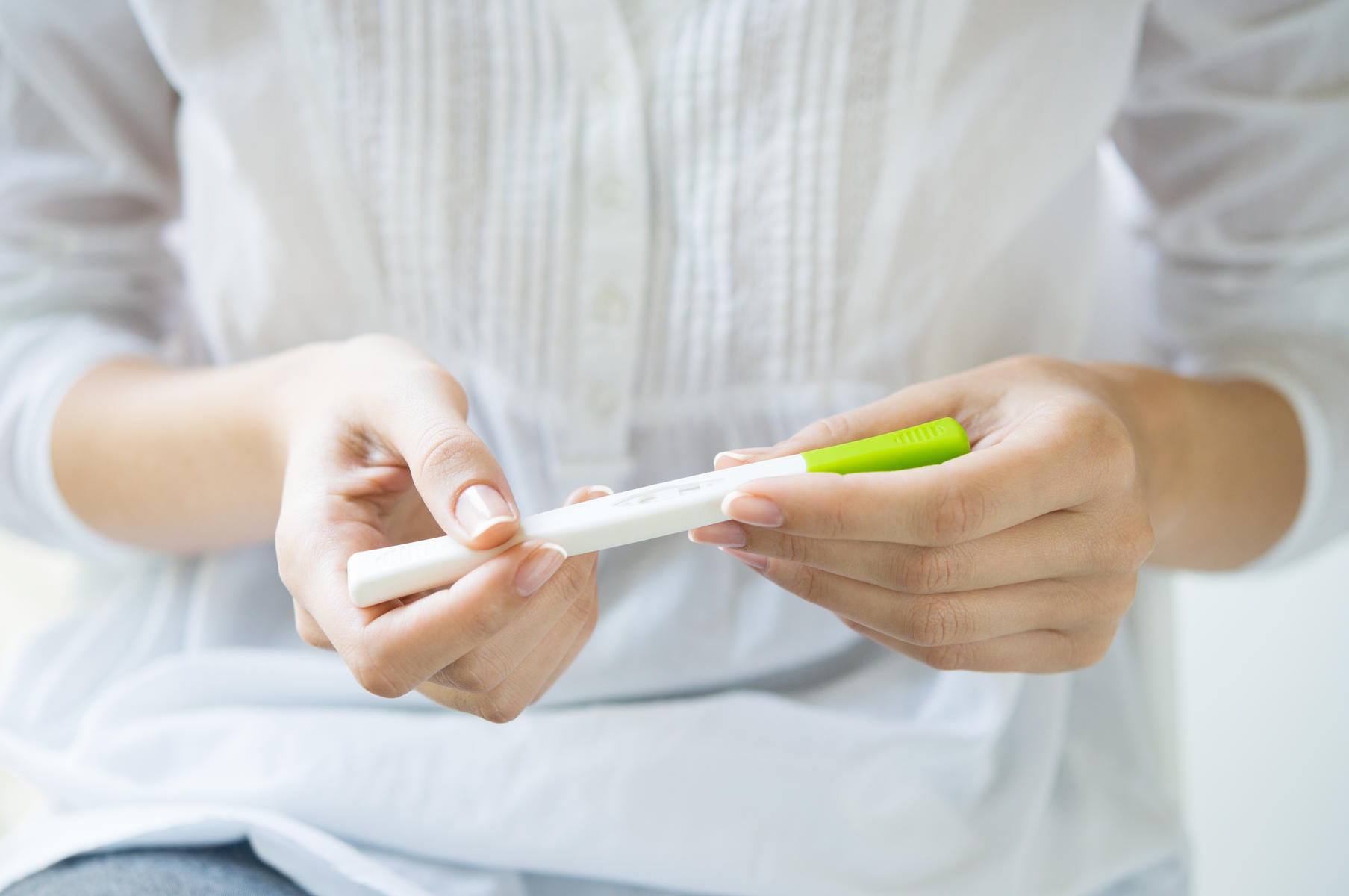
Many women fight against their biological clock when it comes to getting pregnant. But egg freezing, also known as oocyte cryopreservation, is a fertility treatment that can preserve healthy eggs for later use. Here’s everything you need to know about egg freezing, including the necessary preparations, side effects, and procedural details.
Why Do People Freeze Eggs?
“The reasons women freeze their eggs are as varied as life itself,” says Josh Klein, M.D., co-founder and reproductive endocrinologist at Extend Fertility. “We see more women making this proactive investment because their lives are on a different timeline than their biological clocks.” That’s because egg quality and quantity decreases with age, and the most significant changes happen after age 35. The chances of getting pregnant dwindle every year after this point.
“Many women feel that freezing their eggs clears their head to focus on other life goals,” says Dr. Klein. “Some say it allows them to go full speed ahead in their career, education, travel, or passions without that constant worry in the back of their head. Still other women say that, after freezing their eggs, they feel less pressure to find a serious partner, which makes dating a lot more fun.” Other women freeze their eggs before undergoing a medical intervention that interferes with fertility. This includes chemotherapy, which decreases egg quality.
How Egg Freezing Works
To begin the process, a woman needs to retrieve mature eggs from her ovaries. Doctors will then freeze the eggs and store them for later use. Here’s more about the process:
Getting Educated: “Before freezing your eggs, it’s important to have a comprehensive fertility assessment performed by a doctor to ensure freezing your eggs aligns with your ultimate life goals,” says Dr. Klein. “There are a variety of factors influencing an eventual pregnancy and it’s important to be as educated as possible.”
Hormonal Injections: A woman takes self-administered injectable fertility medicine for about 8-10 days before egg retrieval. The injections stimulate the ovaries and allow several mature eggs to develop at once, says Lauren Roth, M.D. a board-certified ob-gyn and reproductive endocrinology and infertility specialist with Shady Grove Fertility. (The ovaries typically release only one mature egg per ovulation cycle). Dr. Roth adds that doctors monitor your response to the medications with blood work and transvaginal ultrasounds, meaning you’ll need to visit the clinic about 5-7 times.
Egg Retrieval: Once your ovaries develop enough mature eggs, you’ll undergo a 15-minute surgical procedure. Doctors will insert a needle through the vaginal wall and retrieve eggs with an ultrasound, a needle, and gentle suction. The procedure is performed under mild anesthesia. It leaves no stitches or scars, says Dr. Klein. Most patients recover in one day with mild side effects like bloating, cramping, and pain.
Egg Freezing: An embryologist receives your eggs (usually about 10-15 eggs per procedure, although this varies for everyone). The eggs go through a process called vitrification, which freezes them instantaneously in liquid nitrogen, says Dr. Klein. They reach an ideal temperature (-196ºC) and transform into a glass-like state to halt the aging process. “Scientifically speaking, frozen eggs can be stored indefinitely. There have been numerous healthy babies born from eggs frozen for 5–10 years, with the longest reported successful thaw coming after 14 years. There is no evidence that the health or viability of frozen eggs decreases over time,” says Dr. Klein.
What to Do with Frozen Eggs
If a woman decides to get pregnant with her frozen eggs, she’ll have to undergo in vitro fertilization (IVF). The doctor will unfreeze the egg, fertilize it with sperm in a petri dish, and insert the embryo into the intended mother’s uterus.
In previous decades, older women undergoing IVF would need to use younger donor eggs, which have which have less risk of complication. But frozen eggs “allow women to become their own egg donor in the future,” says Colleen Wagner Coughlin, founder and laboratory director of OVA Egg Freezing Speciality Center. That’s because frozen eggs are preserved in time from the moment they’re retrieved.
There’s a chance, however, that a woman never uses the eggs she freezes – usually because she decides against having kids altogether or manages to get pregnant naturally. What can you do with eggs in this case? “The most common choice is always to discard them,” says Dr. Roth. “But you can also donate eggs, either to an anonymous infertile couple or through directed donation.”
Freezing Eggs at 40: Can I Do It?
“There's no magic age where there's a huge decrease in egg quality,” says Dr. Roth. “Your ovaries do not know your birthday, but eggs are declining in quality over time.” A women can technically freeze her eggs as long as her body produces healthy ones. According to Extend Fertility, you can compensate for lesser-quality eggs by undergoing multiple egg freezing cycles.

Freezing Eggs IRL
We spoke with women who froze their eggs. Here are their answers to commonly asked questions.
Why did you freeze your eggs?
Hillie, a Chicago-based woman in her mid-30s, froze her eggs because she wants to experience pregnancy. “I’m getting older and still haven’t found my partner,” she says. “I haven't eliminated the option of single parenting, but I was looking into what options exist for a single woman and decided that self-donation was a great opportunity.” Freezing her eggs lets her decide to have a baby when the time comes – whether she has a partner or not.
Claire Wasserman, founder and director of programming at Ladies Get Paid, froze her eggs for a few reasons. “I started my business less than three years ago and don’t feel like I have the financial or emotional bandwidth to focus on anything else. I'm also in a same-sex relationship, so we'll need to harvest my eggs at some point anyway,” she says.
How did you prepare for egg freezing?
Kaylene from Portland, Oregon, went through the egg retrieval process twice. Before the procedure, she took a variety of hormonal medications, and she had regular check-ups with her doctor. She didn’t experience any side effects besides bloating and mood swings.
What was your experience like?
The morning of her egg retrieval procedure, Kaylene went to the clinic with her partner. "They have a more comfortable version of the ultrasound table at the gynecologist office,” she says. She doesn’t remember the procedure because of the sedative, but she woke up shortly after in the recovery room. “I really woozy and out of it,” she says. After returning home, she relaxed for the rest of the day, then returned to her normal schedule.
Does it hurt to freeze your eggs?
Recovering from the egg retrieval procedure can be uncomfortable for some women. “It was an excruciating ride home, since you’re going over speed bumps while bloated,” says Kaylene. Her bloating increased three days after the procedure, and it lasted until her next period. Other women experience pain, cramping, and fatigue after retrieval.
How many eggs did you freeze?
According to Claire, “The nurse was hesitant to predict the number of eggs I might expect but explained the following: a woman who is under 35 has about an 85% chance of having a baby with 15 frozen eggs. If 38-year-old freezes the same 15 eggs, that would represent only a 60% chance of having a baby. In order for the 38-year-old woman to have the same 85% chance, she would need to freeze 30 or more eggs.” She further says doctors ended up getting 34 eggs, with 28 of them viable.
In Hillie’s case, doctors retrieved 22 eggs and preserved 16 eggs. The results were better than expected, given that she’s in her mid-30s.
What do you plan to do with the frozen eggs?
Hillie considers her frozen eggs as a back-up plan. “I anticipate using the eggs if my future partner and I have trouble getting pregnant, or using them for a second child later in life” she says.
For Claire, on the other hand, the frozen eggs are key to conception. “Circumstances willing, my goal is to start trying to conceive in the next three years,” she says.
Do you have any advice for freezing eggs?
Hillie suggests going to a consultation. “It’s hard to make a plan if you don't have all the information,” she says. “Every woman i know that’s going through infertility challenges have said they wish they would have done egg freezing themselves.”
Claire adds: “The pressure to procreate is real! Relieving that pressure is so important as you focus on building your career and whatever goals you have that don't include children. Freezing your eggs is an investment in your future and given that there are now financing options available, it’s something that everyone can – and should – take advantage of.”

